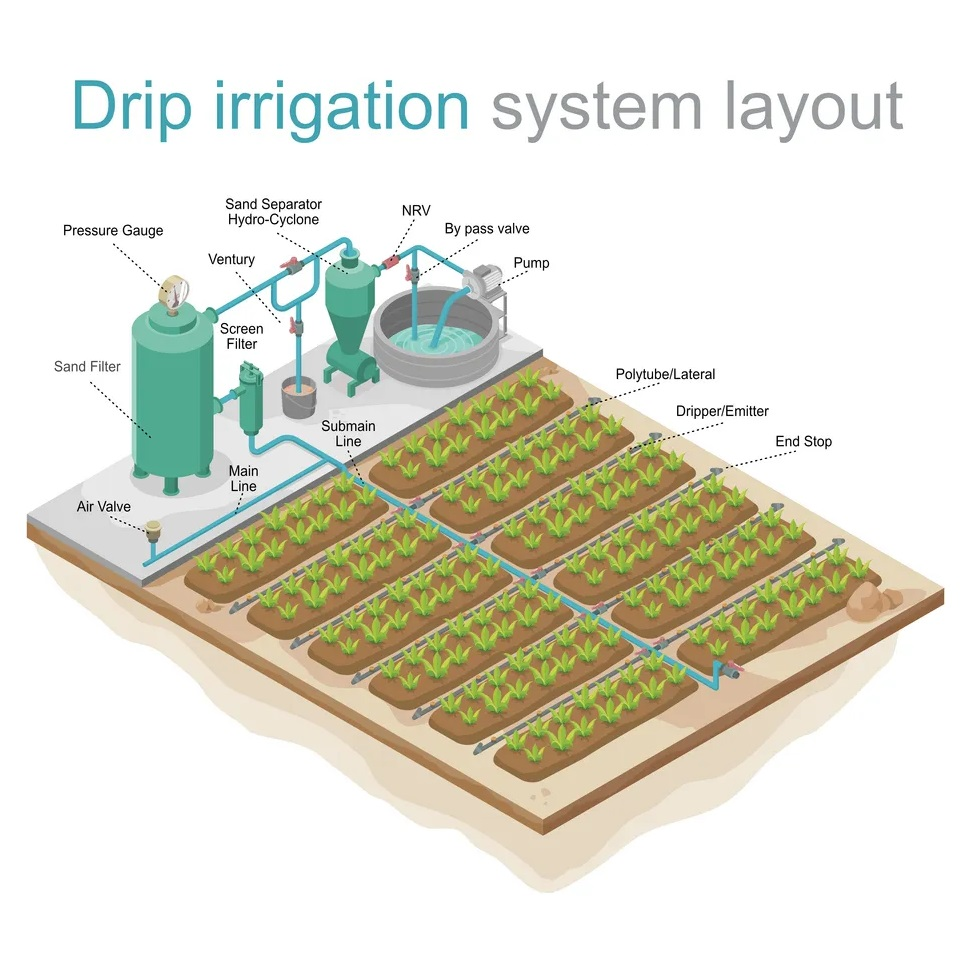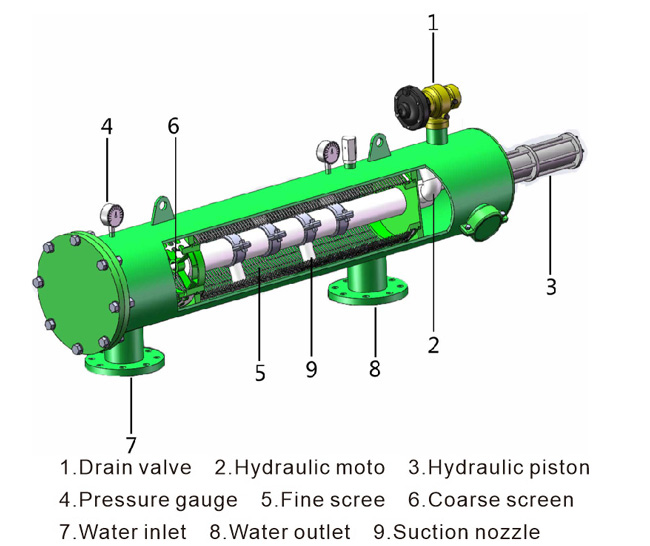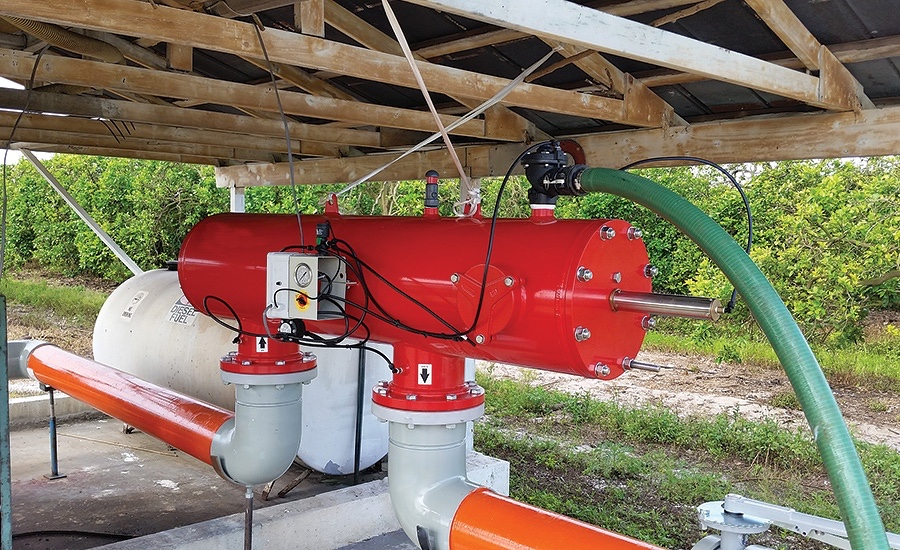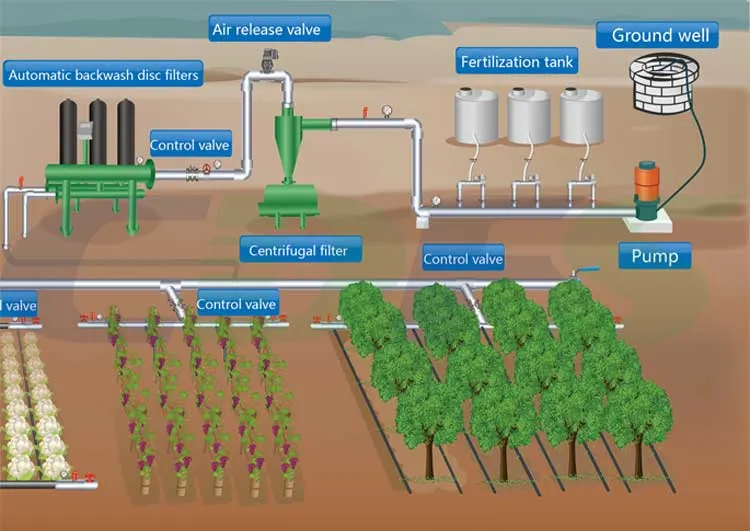Applications of Self-Cleaning Filters in Agricultural Irrigation Systems
DATE:2024-09-10 Number of views: 1 Source:dongwenhui
Agriculture is one of the most water-dependent industries globally, and ensuring the quality of water used for irrigation is crucial for maintaining healthy crops and soil. Self-cleaning filters have become a valuable solution for improving water quality in agricultural irrigation systems, offering a way to filter out sediments, organic materials, and algae that can hinder plant growth. We explore the role of self-cleaning filters in agricultural irrigation, their impact on crop yields, and their potential for enhancing efficiency in both developed and developing regions.

Self-Cleaning Filters in Agricultural Irrigation
In agricultural irrigation systems, water quality directly affects the health of crops and the sustainability of farming practices. Self-cleaning filters play a critical role by automatically removing contaminants such as sediments, organic material, and algae from irrigation water. These contaminants, if left unchecked, can clog irrigation lines and sprinklers, reducing the efficiency of water delivery to crops and impacting crop health.
Self-cleaning filters operate without the need for frequent manual cleaning, making them particularly useful in large-scale agricultural operations where consistent water flow and minimal downtime are essential. By ensuring a steady supply of clean water, these filters contribute to improved irrigation efficiency, healthier plants, and better crop yields.
Impact on Crop Yields and Soil Health
Clean irrigation water is key to ensuring healthy crop growth. When water is contaminated with sediments or organic material, it can clog irrigation systems, leading to uneven water distribution. This can result in areas of crops receiving too much or too little water, affecting their growth and overall yields. Self-cleaning filters help prevent this by consistently removing debris from irrigation water, allowing for more precise water delivery.
Additionally, the removal of contaminants can protect soil health. Sediments and organic matter, if not filtered, can build up in the soil, leading to poor drainage and increased salinity. These issues can hinder root development and reduce nutrient availability to crops. By ensuring that only clean water reaches the fields, self-cleaning filters contribute to maintaining healthier soil, which in turn supports better crop yields over time.

Reducing Manual Maintenance in Large-Scale Irrigation Projects
For large-scale agricultural operations, manual maintenance of filtration systems can be labor-intensive and time-consuming. Traditional filters require regular cleaning or replacement to function effectively, which can disrupt irrigation schedules and increase operational costs. Self-cleaning filters eliminate much of this burden by automatically cleaning themselves during operation. This reduces the need for manual intervention and ensures continuous water flow, even in large irrigation networks.
For farmers and agricultural managers, this means less downtime, reduced labor costs, and more efficient water use. The ability of self-cleaning filters to operate autonomously also makes them particularly attractive for remote or hard-to-reach irrigation systems where frequent maintenance would be impractical.
Challenges and Opportunities for Self-Cleaning Filters in Rural and Developing Regions
In rural and developing regions, access to clean water for irrigation is often limited, and filtration systems may be rudimentary or nonexistent. Self-cleaning filters present an opportunity to improve water quality in these areas, but their adoption can be challenging due to factors such as cost, infrastructure, and awareness.
However, there is growing recognition of the value of self-cleaning filters in improving irrigation efficiency and reducing the need for chemical treatments. In areas where manual labor is plentiful but technical expertise is lacking, the low-maintenance nature of self-cleaning filters is a significant advantage. Governments and NGOs working in agricultural development are beginning to invest in these technologies to help farmers increase crop yields while reducing the environmental impact of farming practices.

FAQ
How do Self-cleaning Filters improve water quality for irrigation?
Self-cleaning filters improve water quality by automatically removing contaminants such as sediments, organic matter, and algae from irrigation water. This prevents clogs in irrigation systems, ensuring that crops receive a steady supply of clean water, which is essential for healthy growth and high yields.
What contaminants are commonly filtered in agricultural water systems?
Common contaminants in agricultural water systems include sediments (such as sand and silt), organic materials (such as leaves and decaying plant matter), and algae. These substances can clog irrigation lines and reduce the efficiency of water distribution, making filtration essential for optimal water use.
How do Self-cleaning Filters affect crop yields?
By ensuring that only clean, debris-free water reaches crops, self-cleaning filters promote even water distribution and prevent blockages in irrigation systems. This improves plant health and increases crop yields by providing consistent hydration and reducing the likelihood of stress caused by uneven watering.
Are Self-cleaning Filters suitable for large-scale agricultural operations?
Yes, self-cleaning filters are particularly well-suited for large-scale agricultural operations. Their ability to clean themselves automatically reduces the need for manual maintenance, ensuring continuous operation even in vast irrigation networks. This makes them a highly efficient option for managing water quality in large agricultural fields.
Can Self-cleaning Filters handle organic matter and algae in irrigation water?
Self-cleaning filters are specifically designed to handle organic matter and algae in irrigation water. These filters can automatically remove such contaminants before they enter the irrigation system, ensuring that water remains clean and that the system does not become clogged with organic debris or algae buildup.
How often do Self-cleaning Filters need to be maintained in agriculture?
One of the main advantages of self-cleaning filters is their low maintenance requirements. Because they clean themselves during operation, they require far less manual intervention than traditional filtration systems. Routine inspections may be necessary, but the filters themselves typically need little maintenance, reducing operational downtime.
Are Self-cleaning Filters used in developing countries?
Yes, self-cleaning filters are being increasingly used in developing countries, particularly in regions where clean water for irrigation is scarce. These filters help improve water quality, reduce labor costs, and enhance crop yields, making them an important tool in promoting sustainable agricultural practices in rural areas.
Can Self-cleaning Filters reduce the need for chemical treatments in irrigation water?
By removing organic material and algae from irrigation water, self-cleaning filters can reduce the need for chemical treatments such as algaecides and flocculants. This contributes to more eco-friendly farming practices and lowers the overall cost of managing irrigation water.
In conclusion, self-cleaning filters are a valuable tool in modern agricultural irrigation systems, offering significant benefits in terms of water quality, crop yields, and operational efficiency. By automatically removing contaminants from irrigation water, they reduce the need for manual maintenance and improve the sustainability of large-scale farming operations. While challenges remain in implementing these systems in rural and developing regions, the potential for improving agricultural productivity and reducing environmental impact is considerable. As the global demand for food and water continues to rise, self-cleaning filters will play an increasingly important role in ensuring the sustainability of agricultural practices worldwide.

Industry Solutions
Pure Water /Ultra Pure Water System


